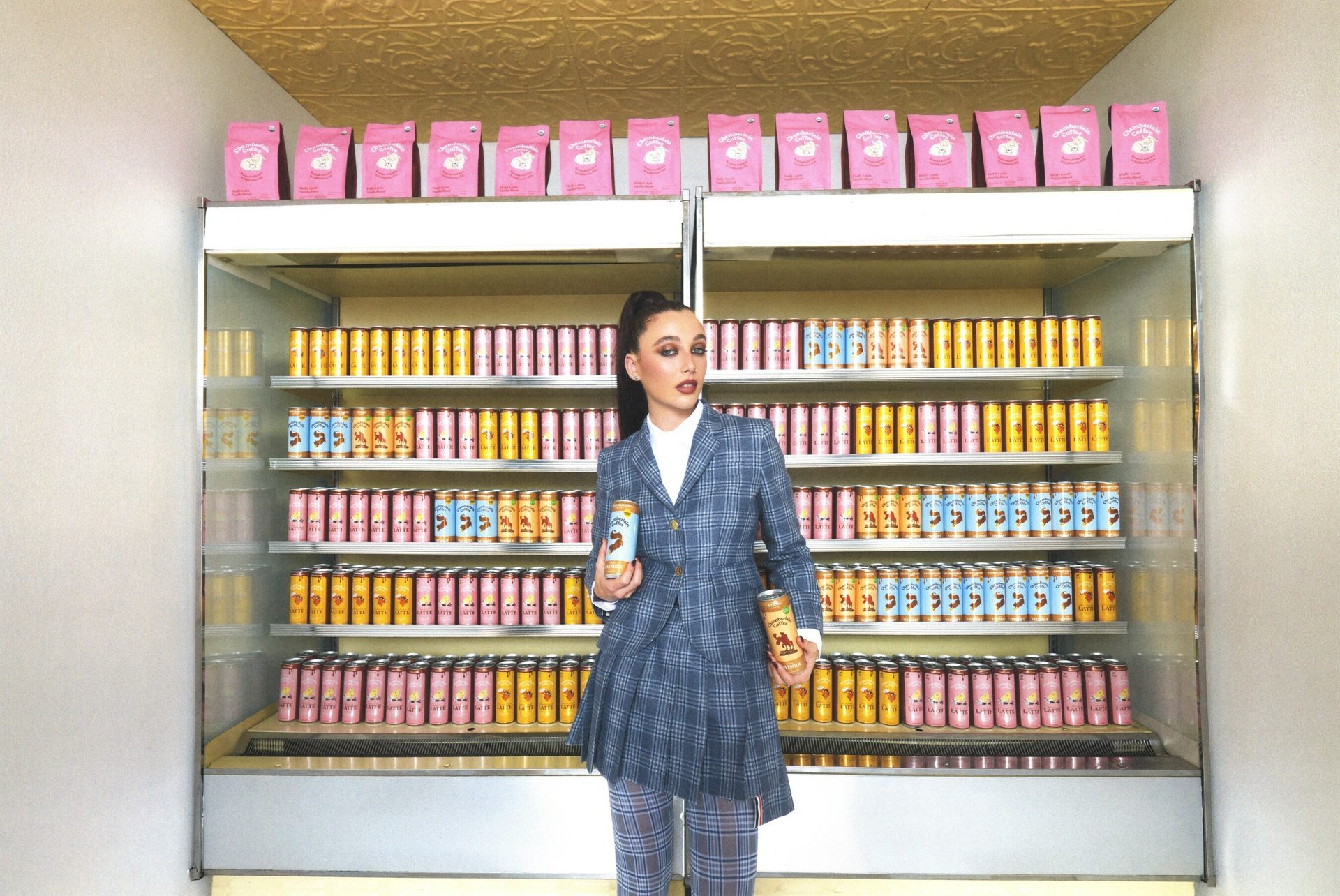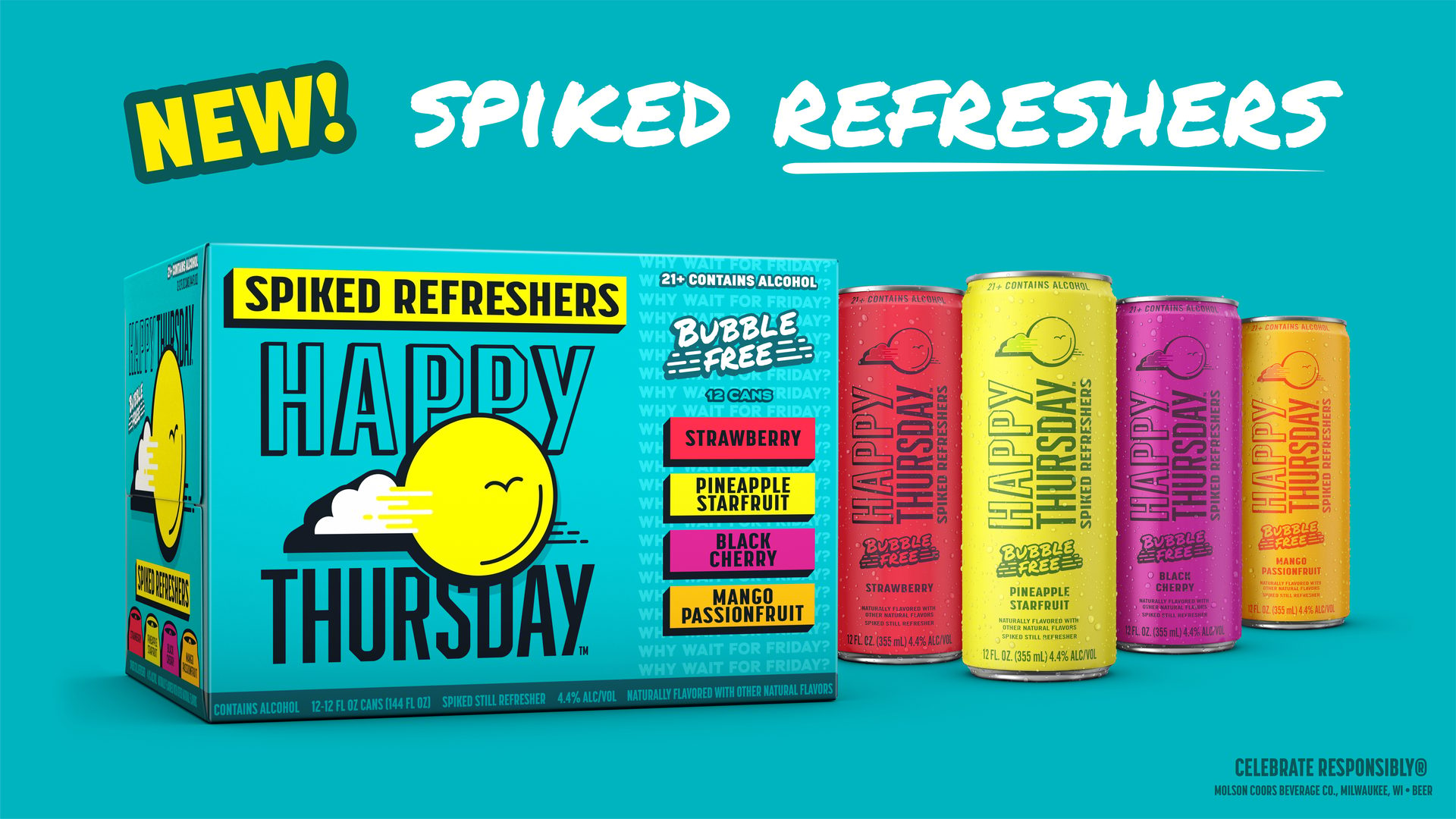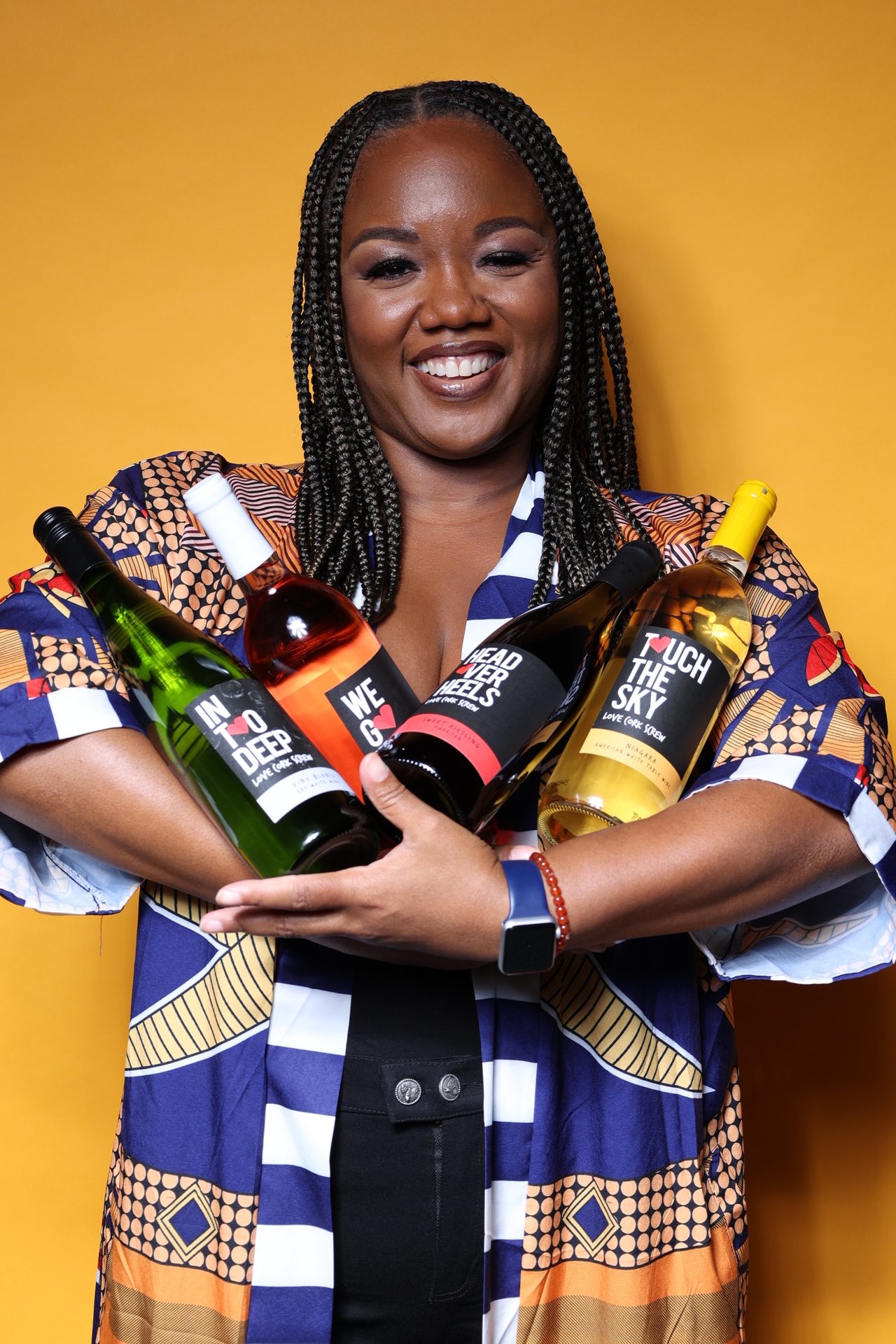Cover
Story
American social media personality Emma Chamberlain rose to Internet fame with her YouTube channel and podcast. The 22-year-old influencer has since ventured into fashion and business, working with brands like Vogue, Lancome, Louis Vuitton and Cartier. In 2019, she launched her online mail order coffee company: Chamberlain Coffee.
Since then, the Generation Z coffee brand has grown into an empire, offering everything from single serve options to accessories. The coffee is sustainably sourced through Food4Farmers to “ensure long-term food security for families within coffee-farming communities,” the company says.
More recently, the company launched ready-to-drink (RTD) Oatmilk Lattes. The products are available in stores nationwide with an exclusive collaboration with Walmart.
Although Chamberlain Coffee is one example of a successful Gen Z-focused brand, as more from this generation are coming of age one can see how they are reforming the beverage landscape.
Gen Z, also known as zoomers or Gen Zers, represents those born between 1997 and 2010 and “represents a diverse segment of the shopping population,” says Julie Craig, vice president of shopper insights at Kantar Retail, New York.
She notes that 47% of Gen Z identifies as non-white and represents 18% of the total population in the United States. This generation has $437 billion in spending power, Craig adds, citing Kantar’s analysis of the U.S. Census Bureau 2021 and Kantar’s 2022 MONITOR DEI Study.
Emma Chamberlain, a 22-year-old social media personality, launched her coffee company in 2019. (Image courtesy of Chamberlain Coffee)

“Gen Z is a generation that has come of age during calamity after calamity, which has shaped not only their worldview, but also the way they manage their spending and shopping,” Craig says. “They care very much about social causes and inclusion, have never known a time when they weren’t fully immersed in digital experiences, and have honed their innate sense of thrift and savvy financial management during the most recent period of inflation.”
Craig goes on to describe the way Gen Zers prioritize community and a sense of belonging over other values, often seeking opinions from their networks before making decisions. She explains that the generation is defined by their sense of thrift, which she suspects is an aftereffect of growing up during recessions, crises and pandemics.
“They prioritize saving money wherever they can and having money stashed away for emergencies and future use,” Craig adds. “They are natural budgeters, which has served them well during times of employment insecurity, inflation and the end of pandemic-era relief programs.”
Liz Paquette, head of consumer insights at Boston-based Drizly, explains that, with regard to the Drizly platform, Gen Z is defined as the youngest generation of legal drinking age consumers in the United States, currently aged 21-26. As of December 2023, Gen Z accounts for 5% of total sales on Drizly, which is growing each year as more of the generation turns 21, she notes.
“When it comes to socializing, Gen Z are not stepping out as much as other generations,” Paquette says. “Home entertaining saw a resurgence in 2023, with Gen Z hosting small and large parties alike. Drizly’s 2023 Consumer Trend Report showed that Gen Z and millennials were especially eager to host this year, with 34% and 31% of respondents wanting to do more of it versus 2022, respectively, compared to Gen X (18%) and boomers (12%).”
Paquette also notes how the generation prioritizes a healthy lifestyle. Along with millennials, zoomers are propelling the non-alcohol trend forward, combined with the growth of health and wellness products, she explains. Drizly’s 2022 Consumer Report showed that 38% of Gen Z and 25% of millennials said they opted for more non-alcohol beverages in place of alcohol ones than the year prior, she says.
“When asked why they are interested in non-alcoholic beverages, ‘healthier lifestyle’ and ‘cutting back on alcohol consumption’ were the Top 2 responses for Gen Z,” Paquette adds.
“Gen Z beverage shoppers are notably different from all beverage shoppers in their desire to stick to a budget, use their smartphones while shopping, and their desire to try new products and enjoy the shopping experience.”
— Julie Craig, vice president of shopper insights at Kantar Retail
Picking the right products
As for important product attributes, Drizly’s 2023 Consumer Trend Report shows that 55% of Gen Z respondents cited interesting/unique packaging as the most important factor when considering which alcohol brands to purchase. Additionally, 31% of Gen Z respondents noted that a lack of transparency in ingredients would stop them from purchasing a product, according to the report.
Kantar’s Craig says that, when shopping and spending on consumable products, Gen Z is looking for a balance of both values and value. She describes their ideal shopping scenario as finding products that benefit (or at least do not harm) communities at an affordable price.
“They are willing to make trade-offs between value and values, whether that is opting for pickup instead of delivery to save on fees or purchasing a slightly more expensive product packaged in a sustainable, environmentally responsible manner,” Craig explains. “Figuring out the balance can be challenging for Gen Z, as they are more likely than all shoppers to feel overwhelmed by choice — especially true of the Gen Z beverage shopper.”
Craig adds that, unlike other generations, Gen Z is less likely to keep ingredients on hand to prepare meals at home, and are more likely to be snacking either between or instead of meals — including having beverages as snacks.
“Gen Z beverage shoppers are notably different from all beverage shoppers in their desire to stick to a budget, use their smartphones while shopping, and their desire to try new products and enjoy the shopping experience,” Craig says. “Gen Z beverage shoppers enjoy shopping online and will also leverage online resources, including social media to research the brands and retailers they are interested in. They are also likely to leverage retailers where they have a delivery/fulfillment membership while shopping.”
Molson Coors is launching a line of Gen Z-focused spiked refreshers. (Image courtesy of Molson Coors)

In comparison with previous generations, Gen Z engages with brands differently.
“When it comes to trying new bev alc brands, Drizly’s 2023 Consumer Trend Report found that pricing was the top factor that influences Gen Z (47%),” Drizly’s Paquette says. “Comparatively, all other generations are more influenced by recommendations from friends and family, with 45% of millennials choosing it as the top factor, 60% of Gen X, 70% of boomers and just 43% of Gen Z.”
Kantar’s Craig describes Gen Z as “a digitally native generation,” often gravitating toward social media for research, discovery, opinions and validation. She says that older generations use social media as an announcement or “let me show you what I did” platform, while Gen Z is using social media to react, learn and converse all at once “and with great fluidity.”
“Gen Z shoppers also have an innate ability to take in massive amounts of disparate information and quickly synthesize and respond, and they are looking for brands to use their digital (and especially social) channels to give them more information about why they should choose a particular brand,” Craig explains. “Gen Z wants to reward worthy brands with their hard-earned and scrupulously saved dollars, but if brands aren’t sharing how they are making a difference in the causes and communities Gen Z cares about (especially DEI-related causes), they’ll miss out on an opportunity to get into Gen Z’s consideration set.
“Comms need to be authentic, direct and consistent in order to resonate — it’s less about filters and memes and more about real world impact,” Craig continues.
A 2023 survey conducted by New York-based NCSolutions (NCS), analyzed the way Gen Z interacts with advertisements.
“Gen Z undoubtedly will raise the bar for [consumer packaged goods] CPG brands, as they differ from older generations in some meaningful ways,” said Alan Miles, NCS CEO, in the report. “Having grown up with — not alongside — the internet, they are used to having instant access to information, products and services. They bring to the marketplace a fully informed and defined point of view about advertising and brands.”
Miles’ statement reflects sentiments shared by Kantar’s Craig regarding the importance of social media and the internet when it comes to Gen Z’s consumption habits. NCS’ survey found that zoomers are “most engaged when advertising is humorous or entertaining.” The survey also shows that Gen Z is most receptive to advertising on social media platforms.
“The economic impact Gen Z will have in the coming years makes understanding what makes this generation tick particularly significant for brands’ long-term marketing strategies,” Miles said. “The purpose-driven mindset and significance of social media in the lives of zoomers are notable differences.”
A new generation of beverages
Although Gen Z might be more likely than other generations to opt for non-alcohol products, they still will engage with beverage alcohol.
As of December 2023, Drizly reported that liquor has a 52% category share for Gen Z, followed by wine at 32%, beer at 15% and extras at 2%. Drizly’s Paquette notes that the liquor share skews higher for Gen Z than the overall Drizly average, while the wine category skews lower.
“On Drizly overall, liquor sits at 46% of share, wine at 38%, beer at 14% and extras at 2%,” she says. “Despite the relatively small size of the non-alcohol beverages on Drizly, non-alcohol beer, wine and spirits are rapidly growing in popularity — particularly amongst the younger generations.”
The platform’s 2023 Consumer Trend report shows that 23% of Gen Z respondents and 24% of millennials reported drinking non-alcohol beer, wine or spirits often, while only 6% of Gen X and boomers did the same.
In a Drizly report titled “Exploring the Ins and Outs of Gen Z Purchasing Trends,” the company notes that Gen Z tried wine and gin during the pandemic, but the generation is more likely to drink tequila, Champagne and pre-mixed cocktails. Beer alternatives also remain popular amongst the generation, which Drizly includes in the overall beer category.
“Light and fruity flavors are preferred when Gen Z makes alcohol purchasing decisions, as are lower sugar and calorie count beer alternatives,” the report states. “In fact, Gen Z is the key driver in ready-to-drink cocktail purchases on Drizly, which, at 8% share of liquor sales, is rising to compete with hard seltzer.”
Top brands among Gen Z purchasers on Drizly include the following:
- White Claw
- Tito’s
- Casamigos
- Veuve Clicquot
- Don Julio
Last October, Molson Coors introduced Happy Thursday, a line of bubble-free, spiked refreshers. The brand was co-created with Gen Zers aged 21 and older. The company noted that this new generation of legal drinking-age consumers “have made it known they want balanced, bright noncarbonated options,” so Molson Coors worked directly with a panel of 21-plus Gen Zers.
“We’ve been seeing and hearing directly from Gen Z that they don’t want carbonation,” said Jamie Wideman, vice president of innovation at Molson Coors, in a statement. “So, together we’ve taken everything the newest legal drinking age consumers love — smooth, flavorful refreshers — and made them spiked, paving the way for a whole new category of alcoholic beverage.”
Happy Thursday’s four flavors — Passionfruit Mango, Black Cherry, Strawberry and Pineapple Starfruit — are slated to hit shelves in March.
Similar to what Kantar’s Craig noted about the generation valuing inclusion and sustainability, Drizly’s report says that Gen Z is full of value-conscious purchasers.
“They expect brands to help move social causes forward, and 42% think brand reputation is very important when it comes to purchasing decisions — the highest of any generation,” it states. “On Drizly, Gen Z over-indexes on sales of brands owned by historically marginalized groups, particularly women-owned, Hispanic-owned and AAPI-owned brands.”
A November 2023 report from NielsenIQ titled “Unlocking the Power of Generation Z in BevAl,” the Chicago-based company analyzed those in Gen Z aged 21 and older.
As for the generation’s buying behaviors, NielsenIQ states that consumption is “a means of self-expression,” so Gen Z opts for personalized products. Like the other experts, NielsenIQ observes Gen Z’s value in companies with similar ethics and sustainability goals. It highlights that Gen Z’s consumption patterns are unique compared with previous generations.
The report shows that Gen Z is concerned about air and water pollution, climate change, food and water waste, water shortages, plastic waste and animal welfare.
According to NielsenIQ’s report, Gen Z is “seeing the lowest buy rates across beer, wine and spirits, except for RTDs. The generation’s spend per trip is lower, “as they do not have as much discretionary income,” and thus, their trips per year are lower.
Like Kantar’s Craig mentioned, NielsenIQ’s report states that Gen Z “value family/friend recommendations, social media, sustainability and supportive of LGBT+ community” significantly more than older generations, especially in terms of alcohol purchasing habits.
With so many factors impacting Gen Z’s choices, marketers wanting to engage with this generation are sure to be keeping an eye on them as they continue to gain more influence in the market. BI









